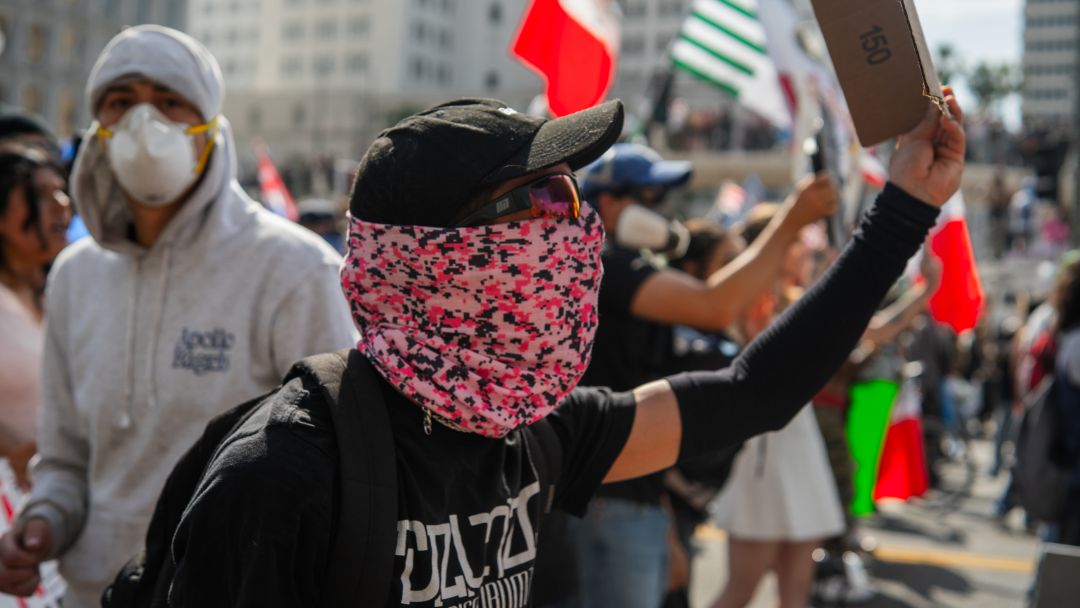An agenda for dealing with criminals who cover their faces.
In response to last month’s riots in Los Angeles, President Trump issued a clear directive on Truth Social: “MASKS WILL NOT BE ALLOWED to be worn at protests.” It’s a bold declaration—and a popular one. Americans instinctively understand that what happened in Los Angeles wasn’t peaceful organizing or messy democracy. Such unrest invites criminal mayhem and political violence, or what our Manhattan Institute colleague Tal Fortgang has described as “civil terrorism.” It’s often perpetrated by agitators who hide behind masks.
While the First Amendment protects freedom of speech and assembly, it doesn’t shield coordinated campaigns of intimidation carried out anonymously. That’s why many states already have antimasking laws—some dating back to the fight against the Ku Klux Klan. But states often hesitate to enforce these laws, and there’s no federal law against street crime or public disorder.
States need to modernize their antimasking statutes by making it unlawful to conceal your identity while committing crimes, intimidating others or obstructing access to public space. This can be done while reaffirming constitutional protections for peaceful expression. Hiding behind a mask to menace the public isn’t protest. It’s coercion.
Continue reading the entire piece here at The Wall Street Journal (paywall)
______________________
Ilya Shapiro is a senior fellow and director of constitutional studies at the Manhattan Institute. Jesse Arm is the director of external affairs and presidential initiatives at the Manhattan Institute.
Photo by Shay Horse/NurPhoto via Getty Images
